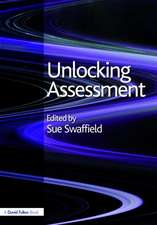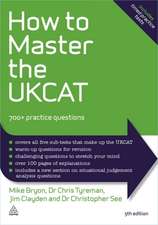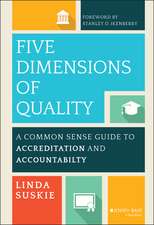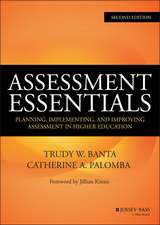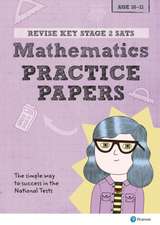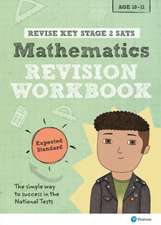Problem-based Learning into the Future: Imagining an Agile PBL Ecology for Learning
Autor Megan Yih Chyn A. Kek, Henk Huijseren Limba Engleză Hardback – 25 oct 2016
In this book we respond to a higher education environment that is on the verge of profound changes by imagining an evolving and agile problem-based learning ecology for learning. The goal of doing so is to humanise university education by pursuing innovative approaches to student learning, teaching, curricula, assessment, and professional learning, and to employ interdisciplinary methods that go far beyond institutional walls and include student development and support, curriculum sustainability, research and the scholarship of teaching and learning, as well as administration and leadership.
An agile problem-based learning (PBL) ecology for learning deliberately blurs the boundaries between disciplines, between students and teachers, between students and employers, between employers and teachers, between academics and professional staff, between formal and informal learning, and between teaching and research. It is based on the recognition that all of these elements are interconnected and constantly evolving, rather than being discrete and static.
Throughout this book, our central argument is that there is no single person who is responsible for educating students. Rather, it is everyone’s responsibility – teachers, students, employers, administrators, and wider social networks, inside and outside of the university. Agile PBL is about making connections, rather than erecting barriers.
In summary, this book is not about maintaining comfort zones, but rather about becoming comfortable with discomfort. The actual implementation is beyond the scope of this book and we envisage that changing perceptions towards this vision will itself be a mammoth task. However, we believe that the alternative of leaving things as they are would ultimately prove untenable, and more distressingly, would leave a generation of students afraid to think, feel, and act for themselves, let alone being able to face the challenges of the 21st century.
| Toate formatele și edițiile | Preț | Express |
|---|---|---|
| Paperback (1) | 636.45 lei 3-5 săpt. | |
| Springer Nature Singapore – 5 iul 2018 | 636.45 lei 3-5 săpt. | |
| Hardback (1) | 643.84 lei 6-8 săpt. | |
| Springer Nature Singapore – 25 oct 2016 | 643.84 lei 6-8 săpt. |
Preț: 643.84 lei
Preț vechi: 757.46 lei
-15% Nou
Puncte Express: 966
Preț estimativ în valută:
123.22€ • 128.16$ • 101.72£
123.22€ • 128.16$ • 101.72£
Carte tipărită la comandă
Livrare economică 14-28 aprilie
Preluare comenzi: 021 569.72.76
Specificații
ISBN-13: 9789811024528
ISBN-10: 9811024529
Pagini: 212
Ilustrații: XVIII, 195 p. 3 illus., 2 illus. in color.
Dimensiuni: 155 x 235 x 14 mm
Greutate: 0.51 kg
Ediția:1st ed. 2017
Editura: Springer Nature Singapore
Colecția Springer
Locul publicării:Singapore, Singapore
ISBN-10: 9811024529
Pagini: 212
Ilustrații: XVIII, 195 p. 3 illus., 2 illus. in color.
Dimensiuni: 155 x 235 x 14 mm
Greutate: 0.51 kg
Ediția:1st ed. 2017
Editura: Springer Nature Singapore
Colecția Springer
Locul publicării:Singapore, Singapore
Cuprins
Chapter 1 Introduction.- Part 1: Imagining PBL in a changing world for learning.- Chapter 2 Imagining an agile PBL: Towards an ecology for connected learning.- Chapter 3 Agile PBL and the next generation of learners.- Part 2 Imagining an agile PBL curriculum for learning.- Chapter 4 Imagining an agile PBL curriculum: Focusing on learning outcomes and authentic interdisciplinary problems.- Chapter 5 Assessing agile PBL.- Part 3 Imagining an agile university for learning.- Chapter 6 Agile student development and engagement for learning.- Chapter 7 Agile staff professional learning for learning.- Chapter 8 Agile curriculum sustainability: Continuous improvement.- Chapter 9 Agile PBL research: Developing a sustainable research and scholarship agenda.- Chapter 10 Conclusion.
Notă biografică
Dr Megan Kek is a senior lecturer with the Academic Services Division at the University of Southern Queensland, with a particular specialisation in PBL, student development and learning, and educational environments. She has published a number of papers in influential and high-ranking journals. In 2002 she published a co-authored book with Prentice Hall, Singapore entitled Authentic Problem-based Learning: Rewriting Business Education. She was a member of the team that won the national Singapore Prime Minister’s Enterprise Award for Innovation in Education for Problem-based Learning in 2001 and again in 2003. The award recognises the most outstanding team whose work has created the highest new value to the public service.
Dr Henk Huijser holds a PhD in Screen and Media Studies, and has been an Academic Developer involved in Learning and Teaching in Higher Education since 2005. Between 2010 and 2012 he was responsible for the institution-wide implementation of Problem Based Learning at Bahrain Polytechnic in the Arabian Gulf, followed by a three-year stint at the Bachelor Institute of Indigenous Tertiary Education in Australia’s Northern Territory, where he was responsible for online learning and teaching. He is currently an Educational Developer at Xi’an Jiaotong-Liverpool University in Suzhou, China, and an Adjunct Researcher at Bachelor Institute. Henk has published extensively in the field of learning and teaching in higher education, including on PBL.
Textul de pe ultima copertă
In this book we respond to a higher education environment that is on the verge of profound changes by imagining an evolving and agile problem-based learning ecology for learning. The goal of doing so is to humanise university education by pursuing innovative approaches to student learning, teaching, curricula, assessment, and professional learning, and to employ interdisciplinary methods that go far beyond institutional walls and include student development and support, curriculum sustainability, research and the scholarship of teaching and learning, as well as administration and leadership.
An agile problem-based learning (PBL) ecology for learning deliberately blurs the boundaries between disciplines, between students and teachers, between students and employers, between employers and teachers, between academics and professional staff, between formal and informal learning, and between teaching and research. It is based on the recognition that all of these elements are interconnected and constantly evolving, rather than being discrete and static.
Throughout this book, our central argument is that there is no single person who is responsible for educating students. Rather, it is everyone’s responsibility – teachers, students, employers, administrators, and wider social networks, inside and outside of the university. Agile PBL is about making connections, rather than erecting barriers.
In summary, this book is not about maintaining comfort zones, but rather about becoming comfortable with discomfort. The actual implementation is beyond the scope of this book and we envisage that changing perceptions towards this vision will itself be a mammoth task. However, we believe that the alternative of leaving things as they are would ultimately prove untenable, and more distressingly, would leave a generation of students afraid to think, feel, and act for themselves, let alone being able to face the challenges of the 21st century.
Caracteristici
Applies to all higher education contexts including culturally diverse contexts Reimagines the purpose of university education Repositions PBL in a constantly evolving ecology for agile learning and teaching Revitalises PBL for a new generation of learners

